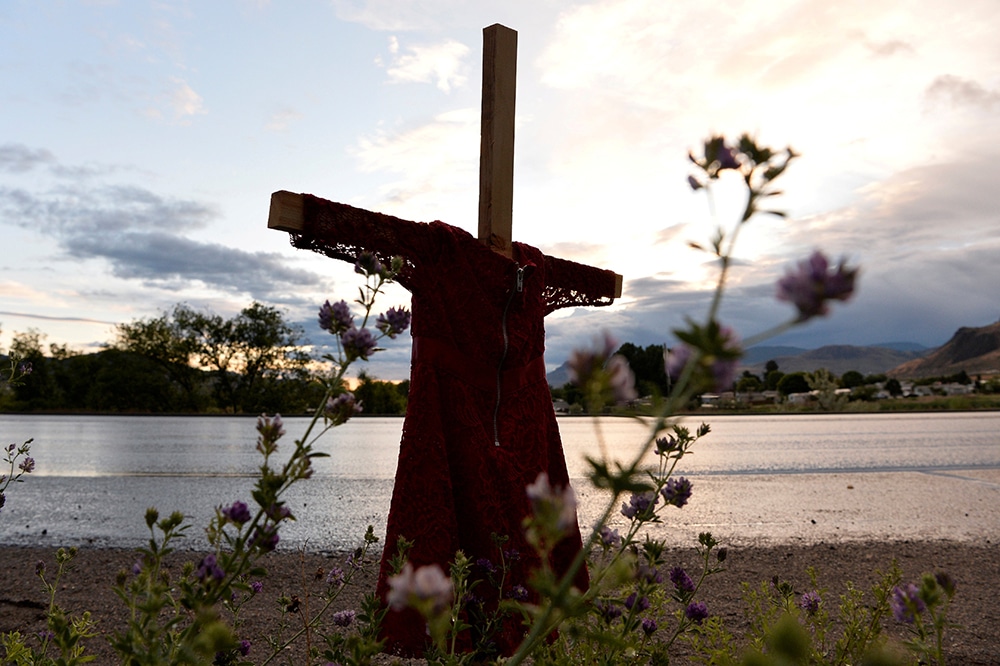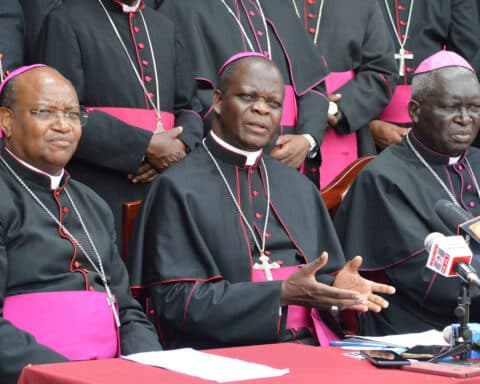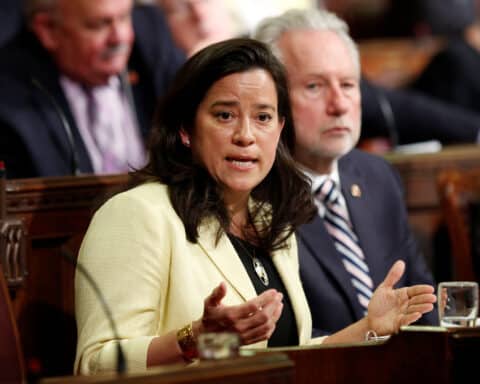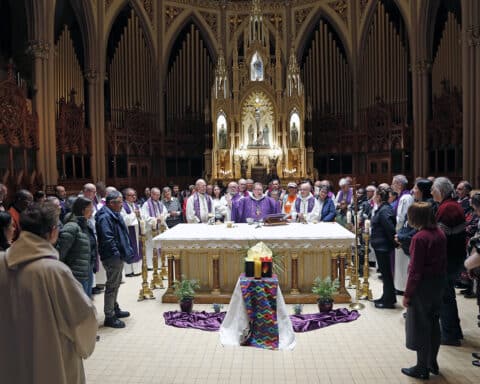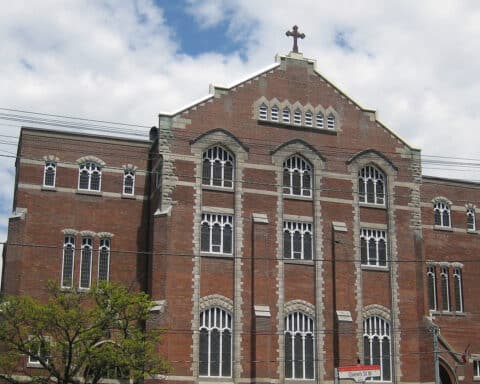
It probably will not go away soon, and American news outlets will continue to report developments. American Catholics will hear and see reports.
What is it? Can Catholics in the United States draw a lesson from what is happening in Canada?
Generations ago, the Canadian government decided that the country’s indigenous people, more recently called the “First Canadians” in speech in Canada — whom Americans would still refer to as “Indians” — needed to be absorbed, in all respects, into the country’s culture that was formed originally by settlers from the British Isles and from France.
This included European attitudes about human behavior, a structure of values to decide what is right or what is wrong, and finally the mere mechanics of living, of speaking English or French — Canada’s two national languages — earning a living, adopting Christianity as a religion, and even dressing according to European styles.
This purpose was to blend future indigenous Canadian society into the mainstream of life in the country, enabling First Canadians to find gainful employment and to live in prosperity. It also would calm any inclinations to revolt against the authority of the European-founded Canadian government and its laws.
Then comes the bad news. The system of assimilation relayed heavily on schooling the young. Indigenous children were taken from their parents, at times by police, and even against their will or against the will of their families. In effect they were confined in government schools.
Children were separated from everyone whom they knew. If they fled the schools, police pursued them to return them to the institutions, as if tracking convicts on the run. It was the Victorian Age, when the philosophy of “spare the rod and spoil the child” ruled.
Above it all was the mindset that indigenous people were behind and inferior to Europeans in all respects. Their religions were nothing more than superstition, their traditions foolishness, their culture an empty fraud, and their history and outlooks counted for nothing.
Since the British overtook French Canada 240 years ago, Catholics have lived without the persecution so brutally visited by the British for so long on the Irish. Letting Catholics alone was the price Britain paid in Canada for ruling the land with less resentment and no uprisings.
As a result, the Catholic Church was an accepted institution, and it volunteered, or was invited, to run many of the schools for the indigenous children.
Bad things occurred — physical abuse and sexual abuse — in the schools, including schools operated by the Catholic Church.
Well-intentioned, if misguided, purposes provide no excuse. The schools are now gone. Canadian authorities, and very many Canadians, today think the system was an awful idea.
The issue of the schools thundered back into the public mind when several weeks ago it was discovered that 215 indigenous children, who had died of goodness knows what, had been buried in unmarked graves at a Catholic school for First Canadians in Kamloops, British Columbia. People were outraged.
Prime Minister Trudeau long has implored Catholic leaders, including Pope Francis himself, to apologize for the Church’s activity with the schools. The pope condemned the mistreatment, but he has not apologized, causing many to link this situation with concealing or downplaying clergy sex abuse.
Americans cannot sit in ivory towers and assume Canada’s problems are unique. We did not have similar schools, but deeply ingrained, longstanding, and evident in America is the opinion that culturally some in society are better. It is a form of racism.
Msgr. Owen F. Campion is OSV’s chaplain.

